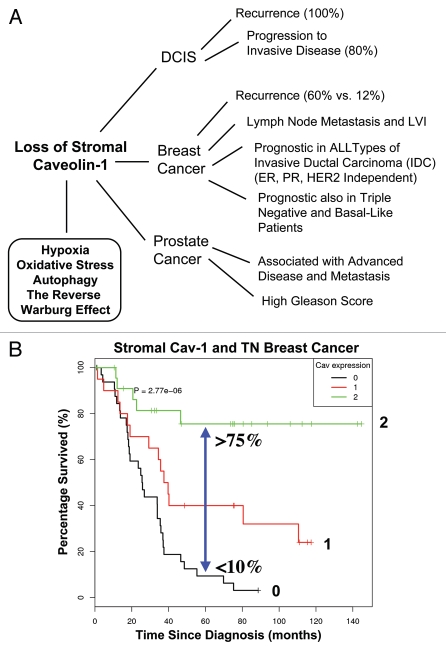Figure 1.
Prognostic value of caveolin-1 (Cav-1) as a stromal biomarker for DCIS, breast cancer and prostate cancer. (A) Schematic diagram summarizing that a loss of stromal Cav-1 is a new biomarker for hypoxia, oxidative stress, autophagy and the “Reverse Warburg Effect.” Importantly, a loss of stromal Cav-1 effectively predicts poor clinical outcome in DCIS (ductal carcinoma in situ), breast cancer and prostate cancer patients. Given that most human tumors have a stromal component, a loss of stromal Cav-1 may have prognostic value in a wide variety of different types of human cancers. Thus, a loss of stromal Cav-1 could be used to identify high-risk cancer patients at diagnosis, facilitating treatment stratification and clinical management. LVI, lympho-vascular invasion. (B) Kaplan-Meier analysis of stromal Cav-1 predicts overall survival in triple negative (TN) breast cancer patients. Patients with high levels of stromal Cav-1 (score = 2) had a good clinical outcome, with 75.5% of the patients remaining alive during the follow-up period (nearly 12 years). In contrast, the median survival for patients with absent stromal Cav-1 staining (score = 0) was 25.7 months. The results of this analysis were highly statistically significant (p = 2.8 × 10−6). (B) was reproduced from reference 8, with permission from the publisher (Landes Bioscience).

